In a world where pajamas are the new power suits and coffee is the unofficial fuel of productivity, remote DevOps engineer jobs are stealing the spotlight. Imagine a career where you can orchestrate complex systems and automate processes—all while lounging on your couch or in your favorite café. Sounds dreamy, right?
As companies embrace digital transformation, the demand for skilled DevOps engineers has skyrocketed. These tech-savvy professionals bridge the gap between development and operations, ensuring that software runs smoothly and efficiently. With the flexibility of remote work, engineers can enjoy a better work-life balance while tackling exciting challenges from anywhere. So if you’re ready to trade the daily commute for a cozy home office, it’s time to dive into the world of remote DevOps engineering.
Table of Contents
ToggleOverview of Remote DevOps Engineer Jobs
Remote DevOps engineer jobs encompass roles focused on integrating development and operations to enhance software delivery efficiency. Professionals in this field manage deployment cycles while automating infrastructure processes. Companies seek these engineers as they contribute significantly to seamless digital transformation efforts. According to a 2023 report, 70% of organizations prioritize hiring skilled DevOps professionals to streamline system management.
Responsibilities include monitoring application performance, maintaining system reliability, and implementing CI/CD pipelines. These tasks ensure software operates optimally, reducing downtime. Flexibility characterizes remote positions. Engineers often choose their work environments, which fosters productivity.
Educational qualifications typically involve degrees in computer science or related fields, alongside proficiency in programming languages like Python and Go. Familiarity with tools such as Docker, Kubernetes, and Jenkins is common. Job postings frequently highlight the need for experience in cloud platforms, especially AWS and Azure.
Salaries for remote DevOps engineers average between $90,000 and $150,000 annually, influenced by experience level and geographic location. Benefits often encompass healthcare plans, paid time off, and continuous education stipends.
The rise in remote jobs correlates with increasing employee satisfaction. Remote DevOps engineering positions support not only individual flexibility but also align with organizational goals for efficiency. Adapting to this trend remains crucial for companies aiming to attract top talent in the evolving tech landscape.
Skills Required for Remote DevOps Engineer Jobs

Remote DevOps engineer positions require a blend of technical and soft skills, essential for managing complex systems and driving seamless collaboration in a remote environment.
Technical Skills
Strong knowledge of cloud platforms such as AWS, Azure, or Google Cloud is crucial. Familiarity with containerization tools like Docker and orchestration systems such as Kubernetes enhances deployment efficiency. Proficiency in scripting and programming languages, including Python, Bash, and Go, is often required for automation tasks. Experience with CI/CD pipelines and version control systems like Git streamlines development processes. Understanding monitoring and logging tools such as Prometheus, Grafana, and ELK Stack equips engineers to maintain system reliability. Mastery of networking concepts and security practices ensures application safety in a remote context.
Soft Skills
Adaptability stands out as a key trait for remote DevOps engineers. Effective communication fosters collaboration between development and operations teams, vital for remote work. Problem-solving skills help engineers address challenges promptly and creatively. Time management is essential to balance multiple tasks and meet project deadlines. Additionally, a proactive mindset encourages continuous learning and improvement in skills and processes. Conflict resolution abilities contribute to maintaining positive team dynamics, especially in a virtual workspace. Empathy and understanding toward team members foster strong relationships and improve overall efficiency.
Benefits of Remote DevOps Engineer Jobs
Remote DevOps engineer jobs offer distinct advantages that attract professionals across industries. These roles promote a healthier work-life balance while providing flexible schedules that cater to individual needs.
Work-Life Balance
Remote DevOps positions enable engineers to create manageable routines. Professionals can designate specific work hours that fit personal commitments, leading to reduced stress levels. Enhanced satisfaction emerges from the ability to prioritize family time and personal projects alongside work responsibilities. A healthier balance allows for focused productivity during work hours and increased job enjoyment. With 70% of organizations prioritizing skilled DevOps professionals, companies recognize the importance of this balance in attracting and retaining talent.
Flexibility and Autonomy
Flexibility plays a significant role in remote DevOps engineering. Engineers can choose their work environment, whether it’s a quiet home office or bustling café. Autonomy fosters innovation, as designers can implement creative solutions without traditional office constraints. Increased comfort results in enhanced focus, boosting efficiency and performance. Additionally, having the freedom to manage projects aligns with the rising demand for self-driven professionals. Organizations benefit from greater output while employees enjoy a sense of ownership and responsibility in their roles.
Challenges in Remote DevOps Engineer Roles
Remote DevOps engineers face unique challenges that can hinder productivity and collaboration.
Communication Barriers
Effective communication presents a significant hurdle. Remote teams often rely on digital tools like Slack, Zoom, and Microsoft Teams, which can lead to misinterpretations. Misaligned expectations may arise due to lack of face-to-face interactions. Engineers must actively engage to convey ideas and updates clearly. Clear and concise messaging promotes better understanding among team members, but it requires strategic planning and frequent check-ins. Regular feedback loops can enhance clarity and ensure everyone stays on the same page.
Time Zone Differences
Time zone differences complicate synchronous work. Many organizations operate across multiple regions, resulting in staggered work hours. Collaboration becomes challenging when teams cannot align their schedules. Project timelines may extend due to delays in communication and feedback. Engineers often grapple with balancing personal workflows and the availability of their colleagues. Synchronizing meeting times and utilizing project management tools can help bridge this gap and enhance team coordination. Awareness of each other’s time limitations fosters a more collaborative environment, ultimately improving project outcomes.
How to Land a Remote DevOps Engineer Job
Securing a remote DevOps engineer position requires a strategic approach. Candidates must showcase their skills and experiences effectively while leveraging available resources.
Building a Strong Resume
Crafting a strong resume involves highlighting relevant experiences and technical proficiencies. Start with a clear summary that outlines key competencies, followed by sections detailing educational background and project experiences. Emphasize experience with cloud platforms like AWS and Azure, as these are frequently sought after. Use quantifiable achievements, such as improved deployment times or reduced downtime, to demonstrate value. Tailoring the resume for each job application increases visibility to recruiters. Using keywords specific to DevOps roles enhances the chances of passing applicant tracking systems.
Networking Strategies
Networking plays a crucial role in landing remote DevOps engineer jobs. Attend industry-specific webinars and conferences to connect directly with employers and peers. Engaging on professional platforms such as LinkedIn allows for relationship-building with industry leaders. Joining relevant online communities and forums fosters connections and enables sharing experiences. Informational interviews can provide insights and expand professional networks. Actively participating in projects on platforms like GitHub showcases skills while connecting with potential employers. Leveraging these strategies aids in uncovering job opportunities hidden from conventional job postings.
Remote DevOps engineer jobs represent a significant shift in the tech industry. As organizations prioritize digital transformation the need for skilled professionals continues to grow. This role not only enhances software delivery but also supports a healthier work-life balance for engineers.
With the right skills and proactive networking strategies candidates can successfully navigate the job market. Embracing remote work opens doors to flexibility and innovation allowing engineers to thrive in their careers. As the demand for remote talent rises companies that adapt to this trend will attract top-notch professionals ready to drive efficiency and collaboration in a virtual environment.



